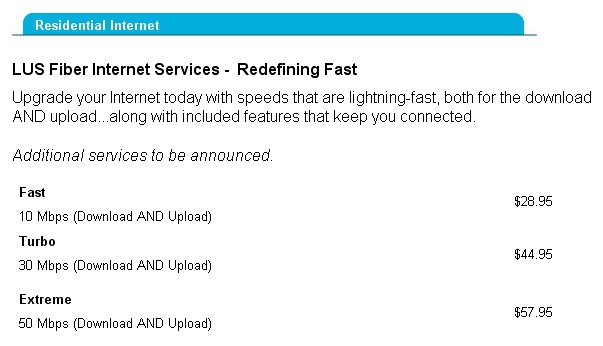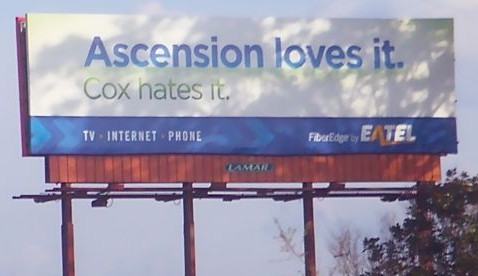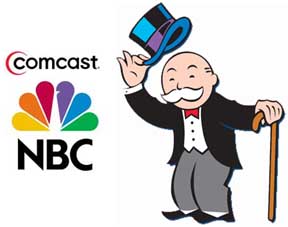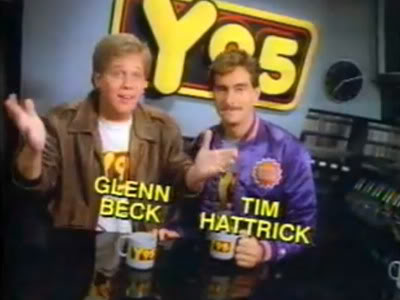Newspaper, broadcasting, and cable magnates have had enough of online web visitors accessing all of their content for free. Free is naughty. Free must be stopped. Free threatens to devalue everything.
For the last few years, content producers have been looking for ways to recoup investments in online publishing. Newspapers publish articles online and fear that causes people to stop paying for the printed edition. Studios and networks make their shows available on Hulu, and people find on-demand viewing more convenient than watching ad-packed live television. Cable magnates worry about people dropping cable subscriptions and watching all of their video online.
Broadcasting & Cable generated a firestorm late last week when it quoted one of Hulu’s partners — News Corporation’s Deputy Chairman Chase Carey telling the B&C OnScreen Summit “it’s time to start getting paid for broadcast content online.”
“I think a free model is a very difficult way to capture the value of our content. I think what we need to do is deliver that content to consumers in a way where they will appreciate the value,” Carey said. “Hulu concurs with that, it needs to evolve to have a meaningful subscription model as part of its business.”
CNN picked up the story in one of their news blogs, and promptly generated more than 700 responses, most hostile to paying for anything on Hulu, and that included the blog’s author:
“I certainly won’t be pulling out my credit card if the service puts up a subscription pay wall. And I doubt many other customers will be happy to start paying money for a service they previously received for free.”
Most comments indicated they’ll go back watching online TV shows and movies the old fashion way – downloading them from peer to peer torrent networks or newsgroups.
“The Internet abhors a content vacuum, especially one created artificially by a subscription wall,” Stop the Cap! reader Jake writes. “Just like what happened with digital rights management schemes and viewing rights blockades, enterprising net users will always find a way around them and distribute the content a few don’t want us to have.”
The quest for control is increasingly becoming more contentious among super-sized corporate entities that create and distribute content. Comcast seeks ownership of NBC-Universal, a content creator and partner in Hulu, which currently gives away content for free Comcast charges customers to watch. A newly constructed Great Wall of Pay could help stop these business model challenges.
When online content was successfully monetized by advertising, few cared about handing it out for free. In fact, providers like AOL abandoned many of its ‘subscriber-only’ walls to “go free” and attract a larger audience, and corresponding increased ad revenue. In a post-bailout recession era, ad dollars have become scarce and no longer pay all of the bills Hulu’s owners want paid. Advertising industry consultants say Hulu cannot simply increase the number of advertisements to make up the difference. Even though Hulu users confront far less advertising than traditional broadcast television, research has shown online TV watchers resent a lot of the advertising they see now. Many Hulu viewers actively develop a form of ad blindness based, in part, on the resentment those ads bring to the experience. Hulu occasionally offers viewers one extended ad at the start of a show, instead of having them seeded throughout the program. Many take Hulu up on the offer and use that 90 seconds to grab a snack.
Interestingly, the shorter a web ad, the more viewers retain information contained within it. Some web ads run only 10 seconds, and are sold to clients with this in mind, and at a budget price to boot.
For web-ad haters, the worst of all worlds would be a Hulu that retains its limited commercial interruptions -and- charges a subscription fee. For many, that would be the equivalent of “basic cable on the web.” Many will drop Hulu “like a rock” should this happen.
A day after the hue and cry was raised by the Broadcasting & Cable article, skeptics said it was unlikely Hulu would entirely abandon free programming. It may provide a premium pay service offering extra episodes, or perhaps remove commercials entirely for premium customers, a proposition at least some were willing to entertain, depending on the price.
“I would consider paying a very small (less than $3.00) monthly fee to watch Hulu if, and only if, they removed the commercials. Otherwise there are other alternatives,” one commenter wrote on CNN’s blog.
Newspapers are also feeling the bite, even more than online video sites. The printed “dead tree format” of the daily paper has become anathema to the under-30 crowd, despite valiant efforts by some publishers to appeal to younger audiences with feature stories and even free weeklies that mix light news with entertainment features. The only answer has been to take the paper online. For years, concepts like online subscriptions, micropayments (paying a few cents per story), free access only for print subscribers, and charging per story for access to week-old and beyond news archives have been considered, tried, abandoned or ignored when web visitors flee or simply skip the pay content. The daily local newspaper is not what it used to be, and when the “pay here” box pops up, many web visitors simply take their news reading business elsewhere, thanks to the near-universal access to wire service reports and competing media covering stories of interest for free.
Newsday, the Long Island newspaper owned by Cablevision, abandoned its “freeloading” audience yesterday with a new Great Wall of Pay charging a steep $5 a week for those who do not subscribe to either the newspaper or have a broadband account with Cablevision.
The newspaper’s Wednesday edition teased non-subscribers with stories that suddenly drifted off into ellipsis… with an invitation to open your wallet to read more.
Sports media blogger Neil Best, who writes for Newsday, seemed resigned to the fact he was losing a lot of his audience in his farewell-to-free column published Tuesday:
The inevitable decline in my national visibility (and page views) mostly is an ego thing. More to the point, Long Island advertisers understandably have little interest in readers in Dubuque.
For those readers who won’t be coming along for the ride – especially those outside Cablevision territory who in many ways are innocent bystanders in all this – thank you for your readership, input and support.
You will be missed.
Best realistically assessed the number of web visitors he’d see post-Wall, particularly from outside of the immediate area. Best and his readership seemed to collectively sense this project was destined to fail, another bad experiment from aloof and out of touch management to the realities of the web world. One commenter lamented the real victim would probably be Best himself:
What’s most frustrating of all, though, is that everyone knows this venture will fail. It’s never succeeded before and there’s truly no reason it will now. Pay for blogs? Are you kidding me? Even the pay-for-columns model is a one-in-a-million risk. But blogs? We all know this is not just you and I missing Neil, it’s Newsday destroying a commodity that could have helped it promote its other products. So Newsday loses– this has no chance– none– to succeed. And Neil loses –immediately– the majority of his followers. He will suffer the most immediate and quantifiable of harms. His readers, his fans, the people who support him and have helped him grow. Now his bosses shut us out and help him dwindle. And we lose. We lose our beloved journalists– we lose their thoughts and every day muses– things that dont even belong in a newspaper.
The use of the word “commodity” would no doubt cause much consternation among Newsday’s management and Wall Street types. It is the “commoditization” of the news business, with endless debt-laden mergers and acquisitions and the cost-cutting that followed, that trained readers to realize that with the decrease in unique, local content in many newspapers, and their increasing reliance on partnerships with broadcast news operations, wire services, and syndicated feature content, why pay when you can get nearly the same (if not the same) content for free on the next website in the Google results list?
The big believers in the Great Wall of Pay fear what happened to newspapers could happen to their cable, broadcasting, or video rental operations. The commoditization “crisis” is largely self-made: cable and phone companies with their “dumb pipes,” the cost-cutting local broadcaster that dispensed with nightly news, or the alienating video rental chain store made obsolete by Netflix or the Redbox ‘Tardis’ positioned in the entrance to your local supermarket. When companies extract maximum revenue through minimal devotion to quality, uniqueness, and integrity, and either overcharge or irritate customers, why be surprised when consumers rebel when being asked to pay or pay more?
One of the rare success stories in pay content has come from Consumer Reports, which charges an annual fee for access to its online reviews. Consumers notice the dramatic difference between a publication that accepts no advertising and keeps its integrity because of it, and other news sites contemplating pay schemes that are so cluttered with online advertising, autoplaying loud video ads, pop-ups and unders, they can barely find the content they are now being asked to pay for.
Consumers can and will pay for quality content, but many will not be forced into doing so with a corporate blockade on content from “walled gardens” and other “pay me to watch this, right after this ad” schemes. Online, there is more than one way around the Great Wall of Pay.


 Subscribe
Subscribe







